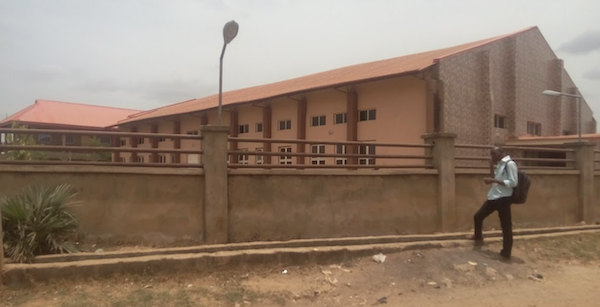
By Inés San Martín
ROME (Crux) — Two days after funerals were held for 40 people killed in Nigeria during Mass on Pentecost, two more churches in the country, one Catholic and one Baptist, were attacked on June 19. At least three people were killed and more than 30 kidnapped.
Gunmen attacked the Maranatha Baptist Church and St. Moses Catholic Church in the rural northwestern state of Kaduna. Sunday’s attacks also targeted four villages, resulting in the abduction of an unspecified number of residents and the destruction of houses.
It isn’t clear who was behind the attack on the Kaduna churches. Much of Nigeria has struggled with security issues, with Kaduna being one of the worst-hit states. At least 32 people were killed in the Kajuru area last week in an attack that lasted hours. Witnesses said the criminals had helicopters, but the local government refuted this, saying the helicopter was used by authorities in a rescue mission.
Worshippers were attending service Sunday morning when assailants surrounded the buildings. Most of the kidnapping victims are from the Baptist community, while the three killed were Catholics.
The Kaduna state government confirmed the three deaths by bandits who “stormed the villages on motorcycles, beginning from Ungwan Fada, and moving into Ungwan Turawa, before Ungwan Makama and then Rubu. Security patrols are being conducted in the general area” as investigations proceed, according to Samuel Aruwan, Kaduna commissioner for security.
The Christian Association of Nigeria condemned Sunday’s attacks and said churches in Nigeria have become “targets” of armed groups.
“It is very unfortunate that while we are yet to come out of the mourning of those killed in Owo two Sundays ago, another one has happened in Kaduna,” Pastor Adebayo Oladeji, the association’s spokesman, told The Associated Press.
A funeral Mass was held on Friday for the victims of the June 6 attack at the St. Francis Catholic Church in Owo, Ondo State, southwestern Nigeria.
“We have failed to defend these people – not because we are not trying but because the forces on the other side are evil and they have support,” said Ondo State Governor Rotimi Akeredolu during the funeral.
Bishop Jude Arogundade of the Ondo diocese accused Nigerian authorities of making “all these empty promises” to find the killers and urged attendees at the funeral to “claim this country back from those destroying it.”
Several members of the clergy have also been kidnapped in recent weeks, including an Anglican bishop and his wife, and kidnappers have set a ransom of $120,000.
Many of the attacks targeting rural areas in Nigeria’s troubled northern region are similar. Hundreds of motorcycle-riding gunmen often arrive in areas where Nigeria’s security forces are outnumbered and outgunned. It usually takes months for the police to make arrests.
Authorities have identified the attackers as mostly young herdsmen from the Fulani tribe caught up in Nigeria’s conflict between host communities and herdsmen over limited access to water and land.
Nigeria, Africa’s most populous country, is one where Muslim-Christian tensions have long flared, particularly since the rise of Boko Haram, a Muslim terrorist organization, over a decade ago. Though many human rights organizations have this country on their regular watchlists when it comes to religious freedom and anti-Christian persecution, the U.S. State Department last year took the country off its watchlist included in the annual Report on International Religious Freedom.
The country of 200 million is evenly split between Christians and Muslims, and the tensions between the two communities are often multifaceted. They may include disputes over land and cattle grazing rights, for example, or tribal differences.
In recent years, however, the rise of Muslim terrorist organizations in Nigeria has meant religion is a greater factor, as is the fact that in the northern region of the country some courts rely on Islamic law.
It’s difficult to nail down exact statistics on religiously motivated violence facing Christians in Nigeria, but the number of Nigerians who have died directly or indirectly due to Islamist-fueled conflict runs into the hundreds of thousands, according to the United Nations.
As Archbishop Matthew Man-oso Ndagoso of Kaduna said last month, in Nigeria’s northern region “religious persecution is systemic.”
“People are not pursued with a knife all the time, but there are unwritten laws that limit Christian’s freedom to practice our religion,” Ndagoso said. “You are not free to get land, pay for it, and build a church on it. Pastors are not free to preach the Gospel.”
